
Giana De La Cruz ’24
Specialized Resources


Giana De La Cruz ’24

Margaret Benson ’23

Miya Preyer ’23

Sebastian Arango Chiquillo ’23
Interview with Grace Flautherly ’23

Miya Preyer ’23

Samirah Jaigirdar '22
Reflecting on my work with the Office of Communications

Samirah Jaigirdar '22
Documenting my last Camel Day as a senior
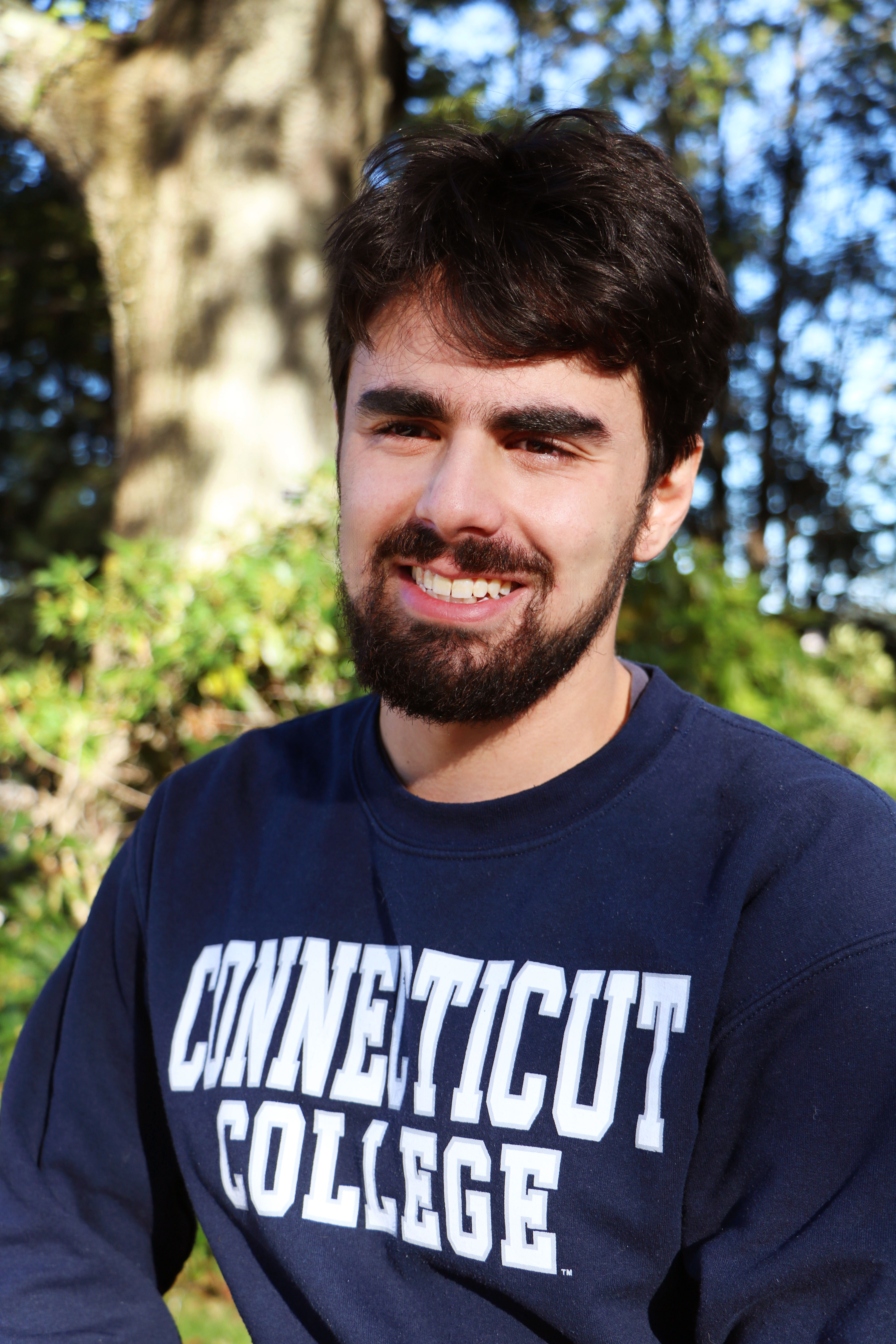
Hometown: Northampton, Massachusetts
Major: Philosophy
Minor: Music performance
Certificate Program: Ammerman Center for Arts and Technology
Activities: The College Voice, Philosophy Club, Hillel House
Favorite aspect of Connecticut College:
The Ammerman Center for Arts and Technology (CAT) is my favorite aspect of Conn. I was admitted as a student scholar to CAT in the fall of my sophomore year, and I’ve loved it ever since. The classes I’ve taken to complete my center requirements have taught me a great deal about what technology is and how it affects our society. They’ve also helped set me further on my path to a career in music and the performing arts. I’ve also been able to make new friendships and deepen preexisting ones by collaborating with the members of my class in CAT.
Favorite memory at Connecticut College:
Playing principal clarinet in the pit during the opening night of the College’s production of Rodgers and Hammerstein’s classic musical “Carousel.” It was a moment when seven weeks of hard work, long nights, and many discussions on the direction of the show finally paid off, and it was the pinnacle of my first year at Conn filled with high points. We also hosted a group of scholars and professionals whose work involved “Carousel,” so getting to play for them and hear their opinions on and experiences with the show was a real treat!
Favorite activity in New London or the region:
Catching a film or show at the Garde Arts Center, a beautiful old movie palace and auditorium in the center of town.
The email came the Monday before my senior recital, as I began preparing in earnest to stage my Ammerman Senior Integrative Project in addition to rehearsing with piano instructor Patrice Newman, my accompanist. “Dear Saadya, I am wondering if you might play your Carl Stamitz: Reimagined concerto for Clarinet and Audience at the [Camel Day] Music Forum on April 22 at 9:15 a.m. in Oliva Hall?” Admitted students are invited to Camel Days each year to help them get better acquainted with the College.
Continue Reading
One of the more time-consuming activities I’ve been engaged in as I prepare to graduate and move to Colorado for the summer has been changing banks. The last time I did this was four years ago as I was preparing to enter Connecticut College, when I switched my main account from a local bank in Northampton, Massachusetts, to Citizens Bank. Connecticut College has a Citizens Bank ATM. So it made sense for me to switch to this particular bank to avoid any potential ATM fees.
In June 2016, my mother and I went to the Citizens branch in Northampton to open a new checking account. After about an hour of work with a bank representative, I had a folder with details about my new checking account and other Citizens products, reminder card with my new bank account and routing numbers and receipt for a checkbook order that would arrive a week later. I was in business.
As I prepare to move to Colorado, I have realized I can’t keep banking with Citizens. The company’s westernmost branches are located in Michigan and Ohio, so withdrawing any cash while I’m in Colorado would incur needless ATM and bank fees. Before and during spring break, I started analyzing various online banking products as well as the benefits I have from bank accounts already open in my name, including one at Florence Bank, my local bank at home. I eventually settled on depositing my money with two different Internet-based financial institutions. I’ve mainly interacted with Citizens through Internet and phone-based services rather than going into any of their branches. So working with banks that do not have any public offices isn’t too concerning to me. All of these banks have little to no minimum funding requirements and usually allow me to withdraw money from anywhere in the nation without penalty. As someone who’s just getting out of College and trying to build a nest egg while also wanting easy access to my funds, this sort of set up is a relief.
I’ve also started to set up methods to save long-term including a small Roth IRA account, which allows me to start saving for buying a house and/or retirement while earning interest. One of the benefits of the Roth IRA plan over traditional IRAs is that I can withdraw money I initially put into the account (but not money earned in the account) tax-free anytime. While banking and making sure to save money can at times feel scary–knowing that I have a plan makes me feel secure about my future.
Continue Reading

In March, I accepted a position as a patron services associate with Creede Repertory Theatre (CRT) in Creede, Colorado. But I still haven’t figured out how to explain to announce to all of my friends and family that I’m doing this. Perhaps it’s that I’m going through a phase where I barely use social media right now. I’m only logging into my Facebook account a few times a week, and I don’t feel like writing a self-congratulatory post about my future.
Continue Reading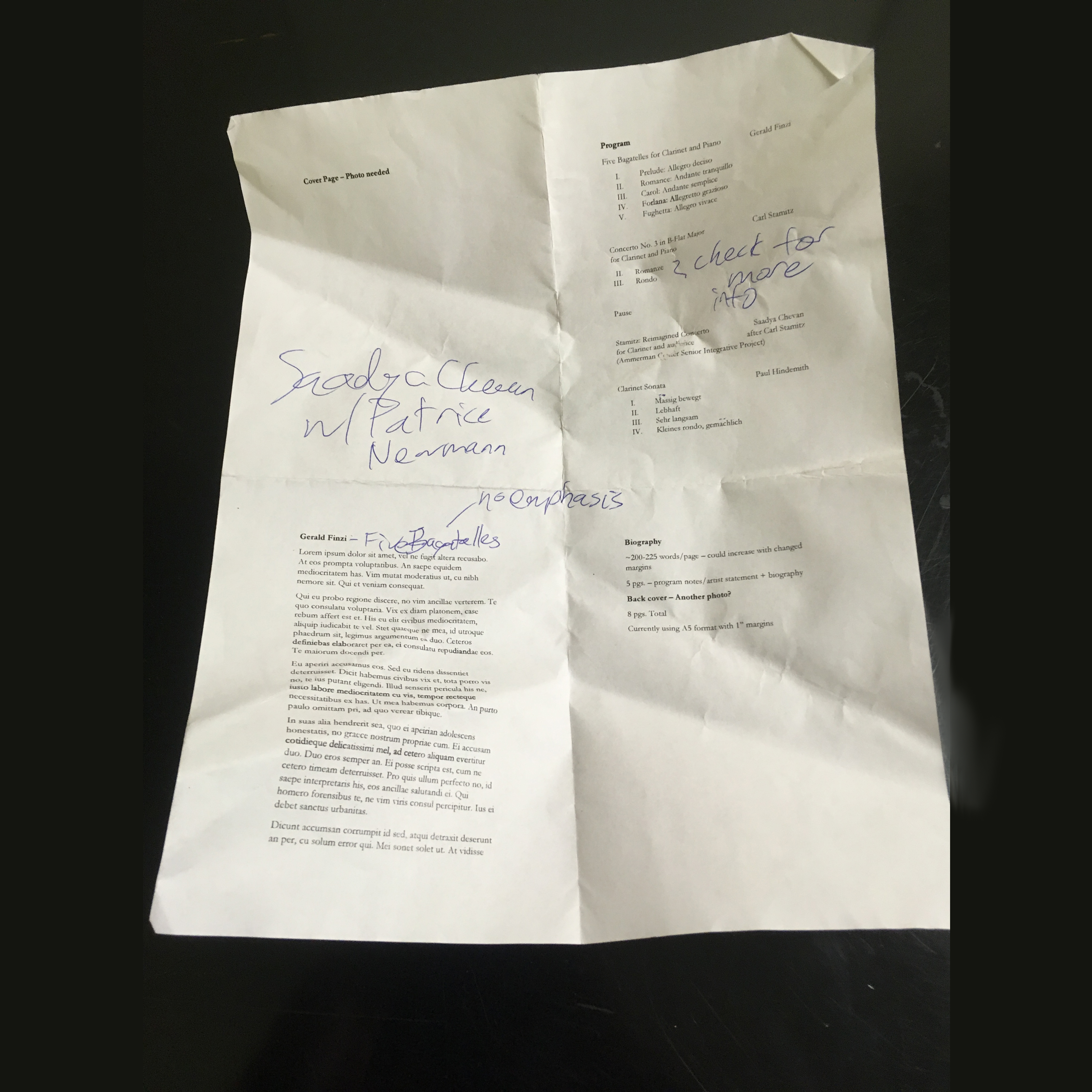
This semester has been busy and challenging for me. I’m preparing a senior recital for the Department of Music to be presented Sunday, April 14, and I’m planning to perform my Ammerman Center for Arts and Technology Senior Integrative Project as part of that recital. This decision has set a major deadline for when the majority of the projects I’m working on for senior year need to be ready to be presented. While it's daunting to realize that I’ll soon be on the stage of Evans Hall performing an hour of clarinet music and my finished project for the Ammerman Center, I’ve realized as the recital nears that preparation comes in baby steps.
Continue Reading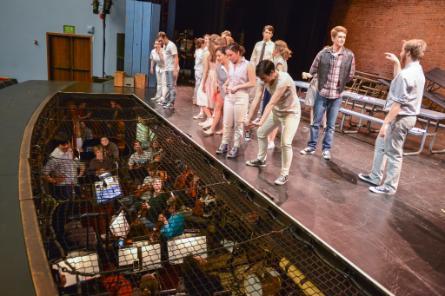
As a senior, I am an expert in all things Connecticut College. I know the best route for biking to Quaker Hill (take Gallows Lane to Bloomingdale Road on the way out and come back on Old Norwich Road/Williams Street) and that my favorite study space is an Olin Science Center computer lab affiliated with the Ammerman Center for Arts and Technology, in which I am a student scholar. I also realize my familiarity with my College whenever I open a tab while browsing the Internet on a school computer, which I do quite often, as it immediately directs me to this website: www.conncoll.edu.
Continue Reading
I’m afforded plenty of opportunities to hear my clarinet professor, Kelli O’Connor, perform at Connecticut College. Most recently, she played in two pieces in the music department’s February faculty recital, including Mozart’s well-known “Kegelstatt” Trio, and last December she was a featured soloist with the orchestra’s string section during our fall concert.
Continue Reading
The end of the semester is always a busy time for me, and, as I’ve previously written, one of the highlights of this period are the various music department end-of-semester concerts and recitals that I participate in. No matter how intense it gets, the end of semester orchestra concert is still a great highlight and culmination of my hard work. This past semester’s performance was particularly special for me as it presented an impromptu opportunity to play with some of the best musicians in the country—three members of the U.S. Coast Guard Academy Band’s trombone section led by Sean Nelson, who is the music department’s trombone professor, in addition to Connecticut College’s own Gary Buttery on tuba, who served as the Band’s principal tubist from 1976-1998. The group constituted our orchestra’s low brass section for our performance of Antonin Dvorak’s Eighth Symphony.
Continue Reading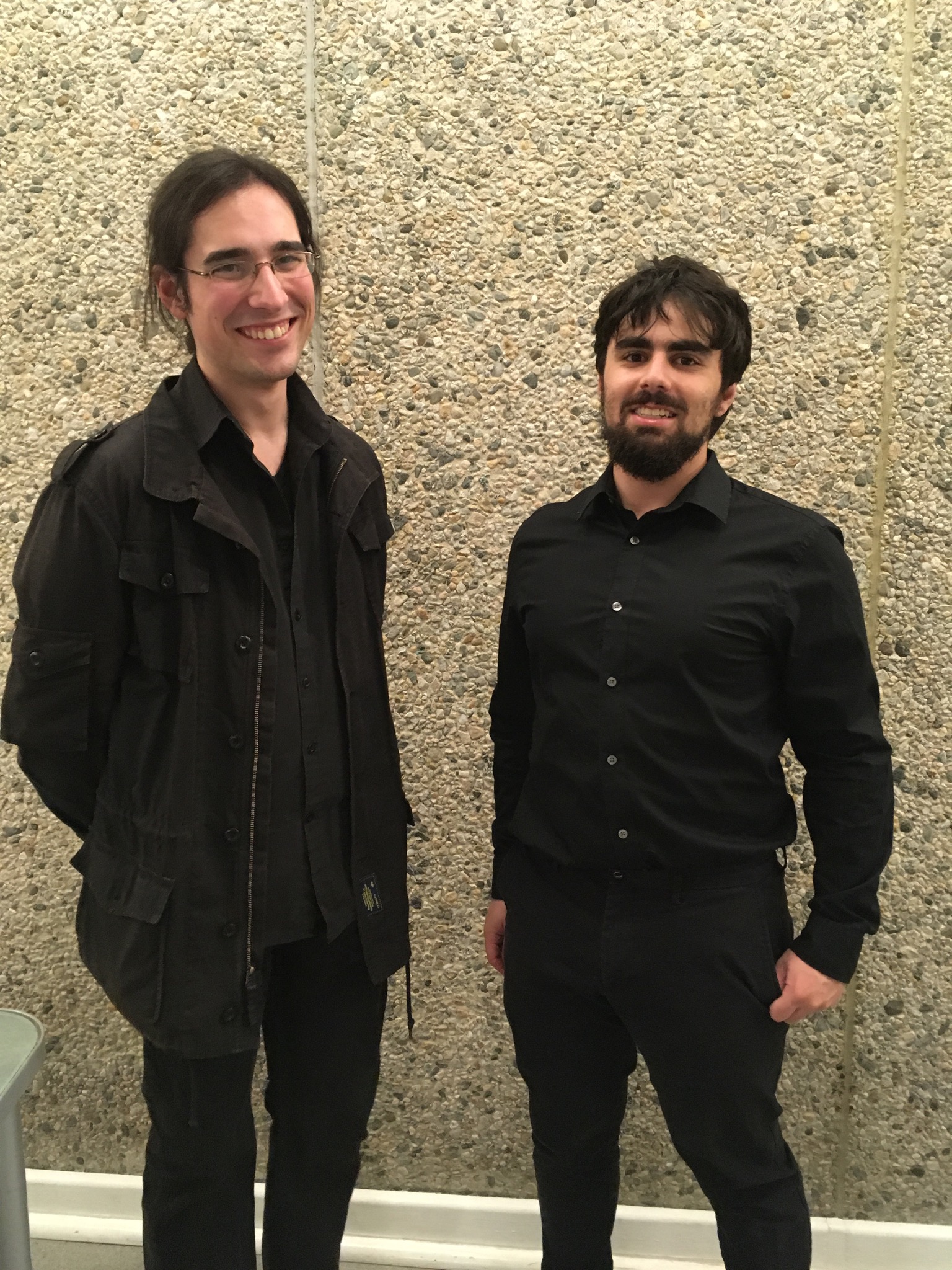
As a sophomore, I applied and was accepted to the Ammerman Center for Arts and Technology at Connecticut College. The Center is one of the five academic centers on campus that provide resources to students and faculty doing interdisciplinary work on a specific subject. Learn more about my journey as an Ammerman Scholar.
Continue Reading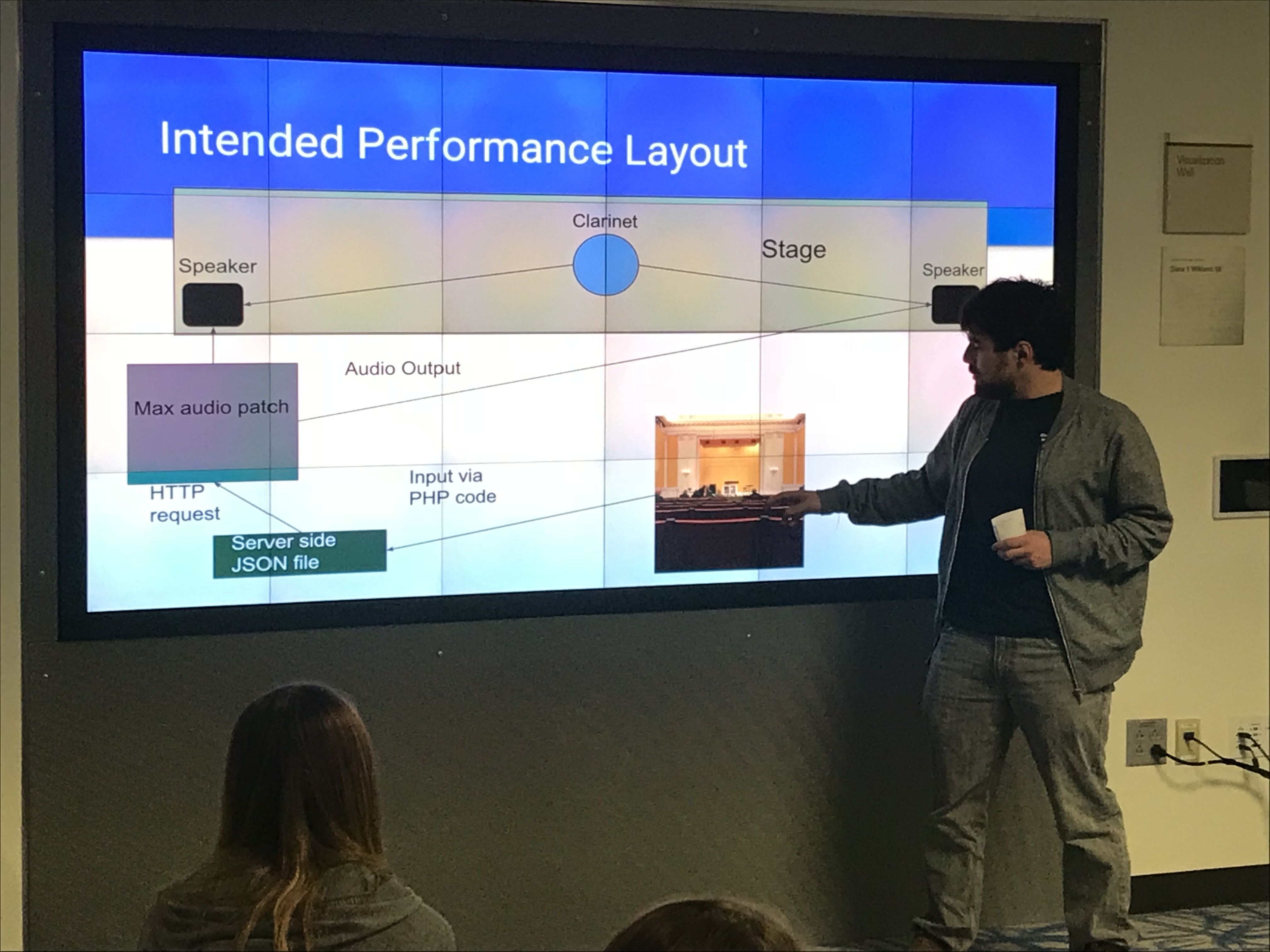
As a sophomore, I applied and was accepted to the Ammerman Center for Arts and Technology, one of the five academic centers on campus that provides resources to students and faculty doing interdisciplinary work on a specific subject. This year I’m working on my Senior Integrative Project (SIP). SIPs are year-long independent studies for seniors in the College’s four center-certificate programs that culminates in a final performance or installation from each senior in the spring. My project is to develop a piece of classical music where audience members get to participate. Learn more about my journey as an Ammerman Scholar.
Continue Reading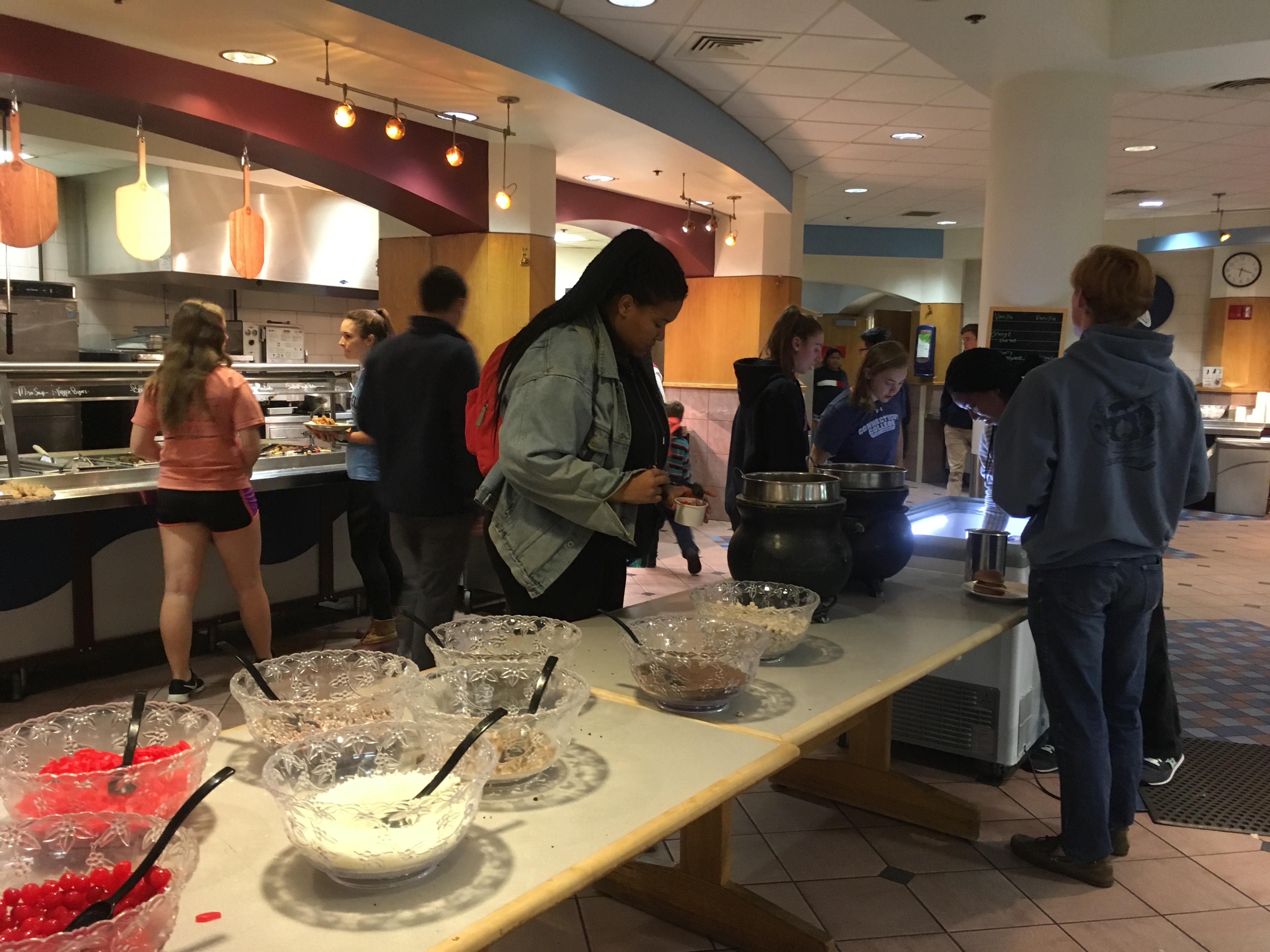
One night during Fall Break I decided to treat myself to a carton of Ben & Jerry’s from the corner store near my house. When I returned, my mom pointed out that eating ice cream must be a rare treat for me with my meal plan at Conn. “Of course not!” I responded, “There’s always ice cream available in the dining hall. We even have a sundae bar every Sunday.”
Continue Reading
As a sophomore, I applied and was accepted to the Ammerman Center for Arts and Technology at Connecticut College. The Center is one of the five academic centers on campus that provides resources to students and faculty doing interdisciplinary work on a specific subject. Learn more about my journey as an Ammerman Scholar.
This semester I’m starting to produce my senior integrative project (SIP) for the Ammerman Center. SIPs are year-long independent study projects that seniors participating in the College’s four center-certificate programs undertake culminating in a final performance or installation from each senior every spring. My project is an attempt to develop a piece of classical music where audience members get to participate. It currently uses the working title “Democracy and Classical Music,” which stems from a challenge posed to me by professors who I have worked closely with developing this project. They posited that allowing audience members to interact raises problems similar to those raised by the challenge of satisfying people with different viewpoints in the democratic process.

As a sophomore, I applied and was accepted to the Ammerman Center for Arts and Technology at Connecticut College. The Center is one of the five academic centers on campus that provides resources to students and faculty doing interdisciplinary work on a specific subject. Learn more about my journey as an Ammerman Scholar.
This semester I’m starting to produce my senior integrative project (SIP) for the Ammerman Center. SIPs are year-long independent study projects that seniors participating in the College’s four center-certificate programs undertake culminating in a final performance or installation from each senior every spring. My project is an attempt to develop a piece of classical music where audience members get to participate. It currently uses the working title “Democracy and Classical Music,” which stems from a challenge posed to me by professors who I have worked closely with developing this project. They posited that allowing audience members to interact raises problems similar to those raised by the challenge of satisfying people with different viewpoints in the democratic process.

I skim every email I receive, even newsletters that seem to come into my inbox solely for me to delete them. However, in a recent copy of “What's New at Shain Library,” a weekly newsletter detailing events, lectures and exhibits taking place at the College’s library, an announcement for a community reading of Harper Lee’s “To Kill a Mockingbird” in honor of Banned Books Week piqued my interest. I contacted Carrie Kent, who organized the reading, and volunteered to read for 20 minutes near the end of the day.
Continue Reading
I skim every email I receive, even newsletters that seem to come into my inbox solely for me to delete them. However, in a recent copy of “What's New at Shain Library,” a weekly newsletter detailing events, lectures and exhibits taking place at the College’s library, an announcement for a community reading of Harper Lee’s “To Kill a Mockingbird” in honor of Banned Books Week piqued my interest. I contacted Carrie Kent, who organized the reading, and volunteered to read for 20 minutes near the end of the day.
Continue Reading
Studying away in Vienna was my first experience living in a big city. Although it’s among the world’s most livable cities, I often found getting out of Vienna satisfying and part of what makes it livable. I chose to study away at IES Abroad’s Vienna Center in part because of the great musical and cultural offerings, but also for a personal reason: I am half-German and grew up in a bilingual German-English speaking household. My family regularly vacations in Bavaria and Austria with the German-side of my family. Given my familiarity with German-speaking areas, I wanted to make my travel experience more than the stereotypical city-hopping on budget airline flights every weekend. On days off I would take a train an hour or two outside the city just to explore a new town.
Continue Reading
Studying away in Vienna was my first experience living in a big city. Although it’s among the world’s most livable cities, I often found getting out of Vienna satisfying and part of what makes it livable. I chose to study away at IES Abroad’s Vienna Center in part because of the great musical and cultural offerings, but also for a personal reason: I am half-German and grew up in a bilingual German-English speaking household. My family regularly vacations in Bavaria and Austria with the German-side of my family. Given my familiarity with German-speaking areas, I wanted to make my travel experience more than the stereotypical city-hopping on budget airline flights every weekend. On days off I would take a train an hour or two outside the city just to explore a new town.
Continue ReadingWhen I discuss writing essays with my friends in other majors, one of the things we talk about is the style and conventions expected from our professors and department. This can be something as basic as what sort of citation style we use, such as Turabian (my personal favorite), MLA, APA or ASA to specific grammatical and structural issues we encounter when writing our papers. For example, in music, there is a difference between a piece that is “for oboe and clarinet” and “for clarinet and oboe”; the first instrument plays higher than the second. One of the subjects I really enjoy writing for is my major: philosophy. Part of what I enjoy about writing papers for philosophy is that I’m allowed to write in the first person, which is unusual in academic writing.
Continue ReadingI’ve written before about my plans to study away from Conn. Next semester I will be studying at the IES Abroad Vienna Music Program in Austria, but right now, as I enter into the final days of the fall semester, I’m focused on completing my obligations at Conn and making plans for the future. One major part of my pre-study away planning process has been the Office of Career and Professional Development’s Junior Year Action Plan. The plan helps me prepare for the College’s funded internship program next summer.
Continue ReadingAs I write this post, I’m sitting in my room, listening to the Broadway recording of the musical “The 25th Annual Putnam County Spelling Bee” on YouTube. Just over 24 hours ago Connecticut College’s student theater community, Wig & Candle, closed their production of that play in Palmer 202, a black box theater and classroom space that is often used for student productions. The production was so popular that we had to add an additional late night performance. Although I have regularly attended Wig and Candle’s performances, this was my first time actually participating in one; I played clarinet in a reduced pit band of two.
Continue Reading
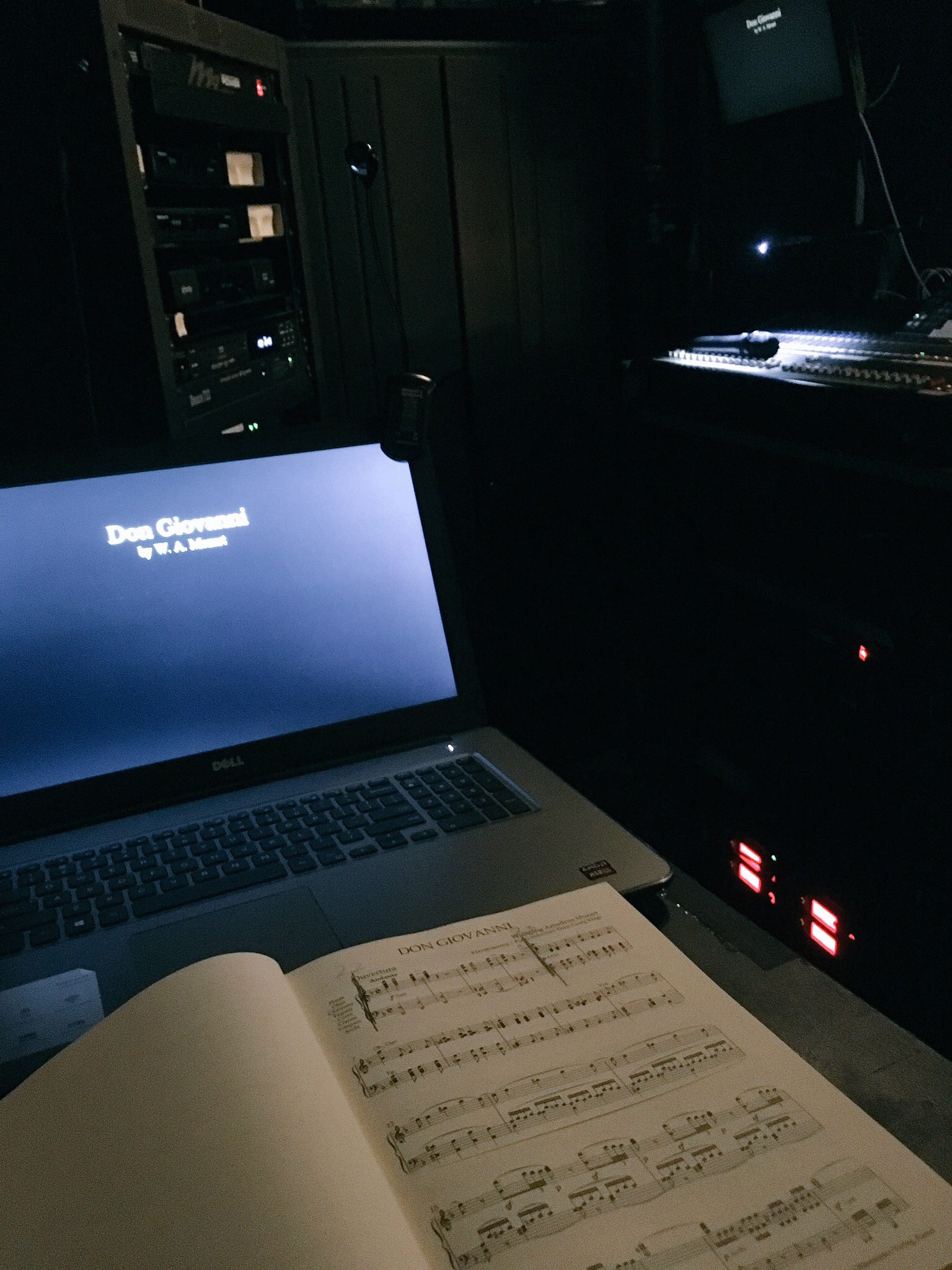
Recently I had the opportunity to supertitle a production of Mozart’s Don Giovanni for Stonington-based Salt Marsh Opera (SMO). This means I was in charge of projecting translations of the opera’s lyrics, which were sung in Italian, above the stage so the audience could understand what the singers were saying. Supertitling an opera is an extremely challenging task that I’m glad I had the opportunity to perform. It requires following along with the singers, conductor and score through almost the entire performance while projecting the correct title at each prescribed moment. It’s almost like playing percussion in an orchestra because of the precision required in being on cue and in sync with the rest of the performers. Needless to say, the intense concentration needed for the three-hour performances made it a very exhausting but fulfilling task.
Continue Reading